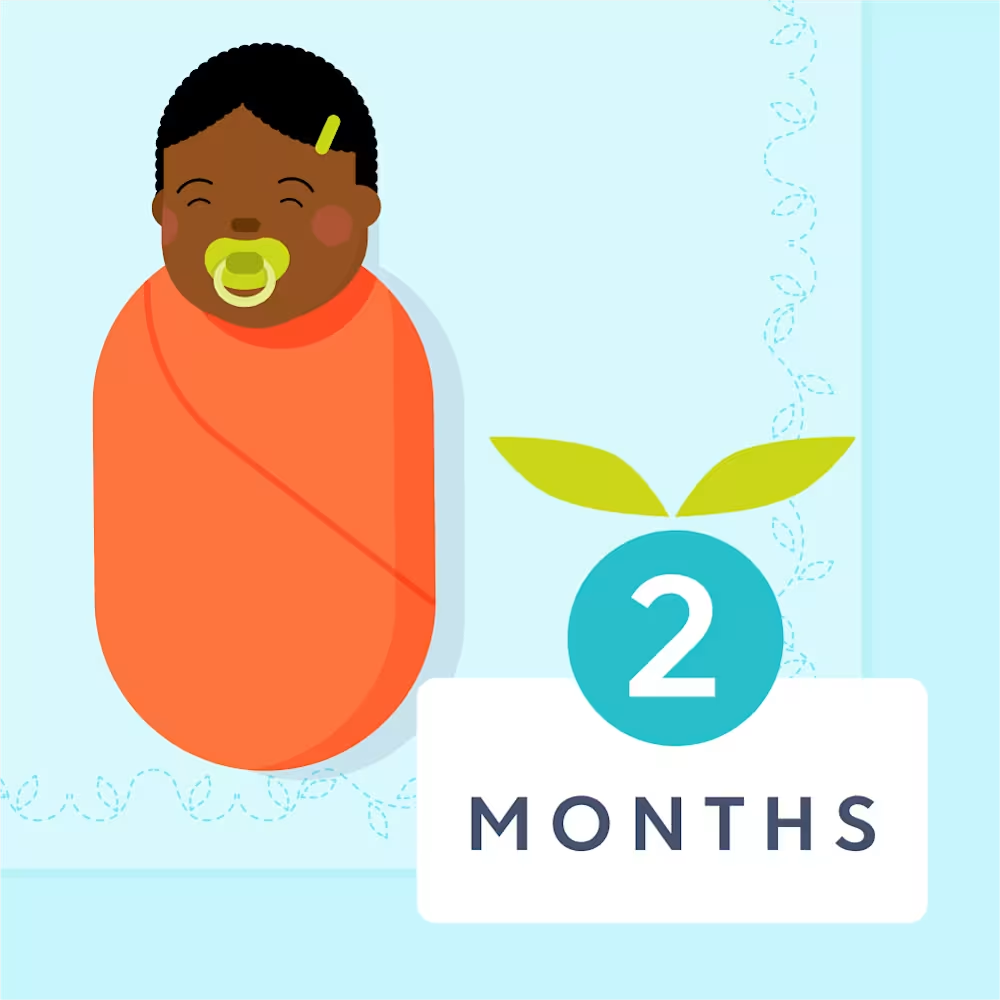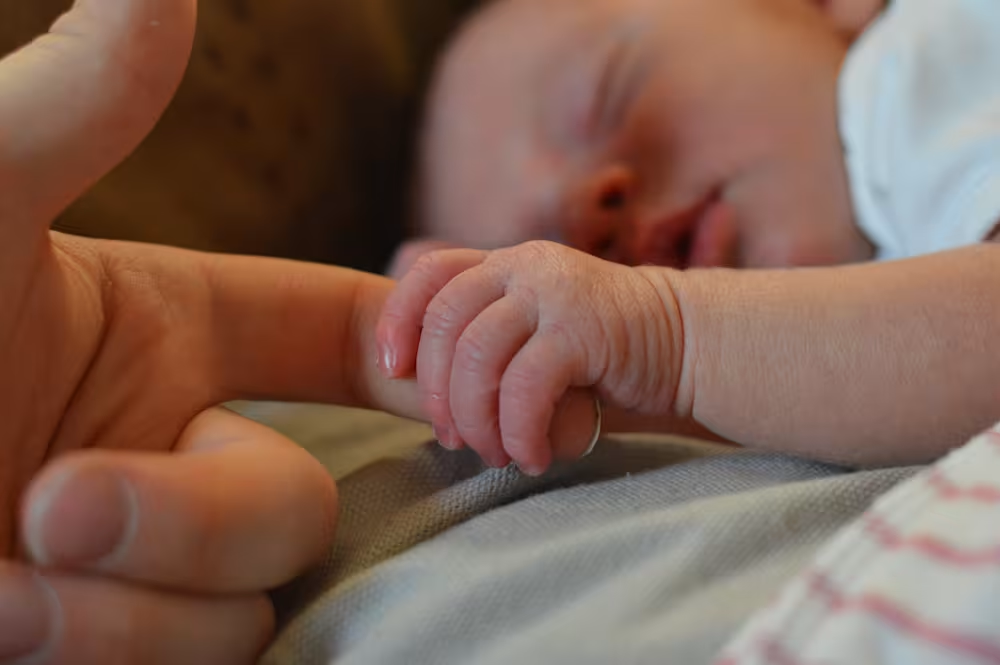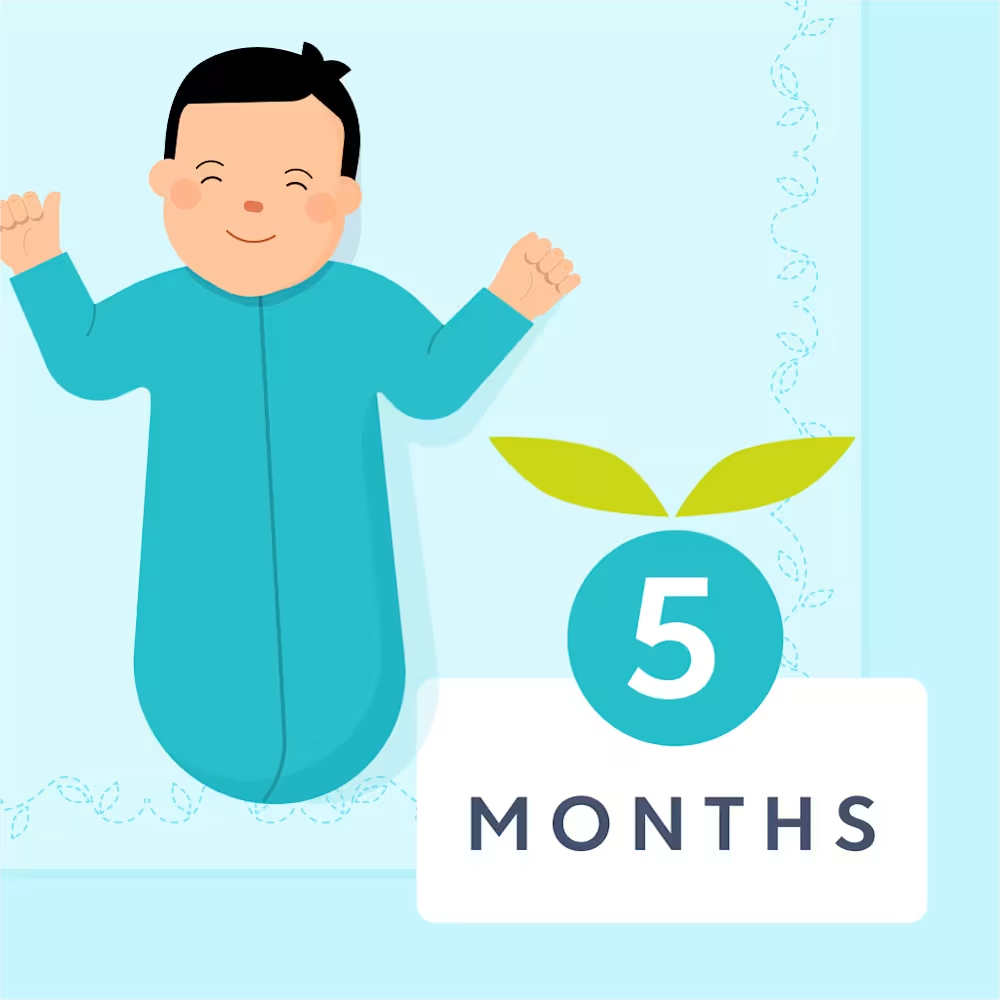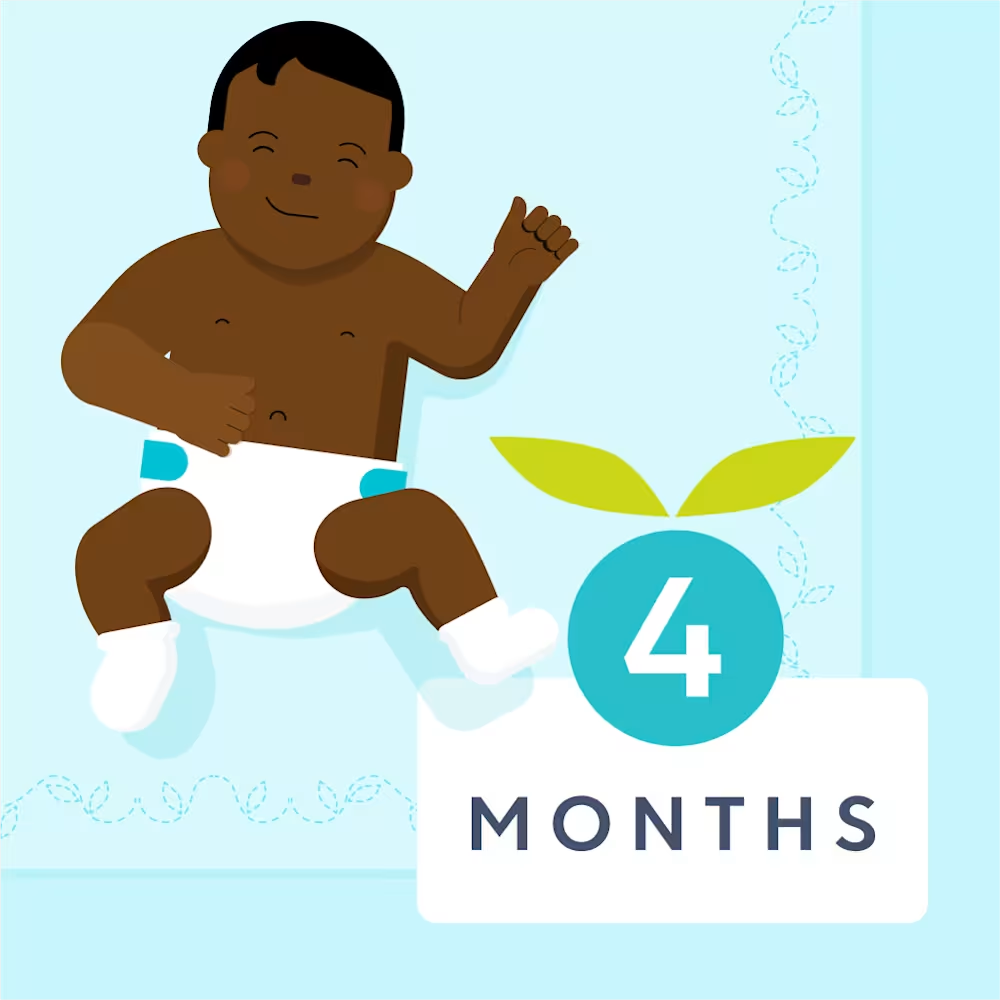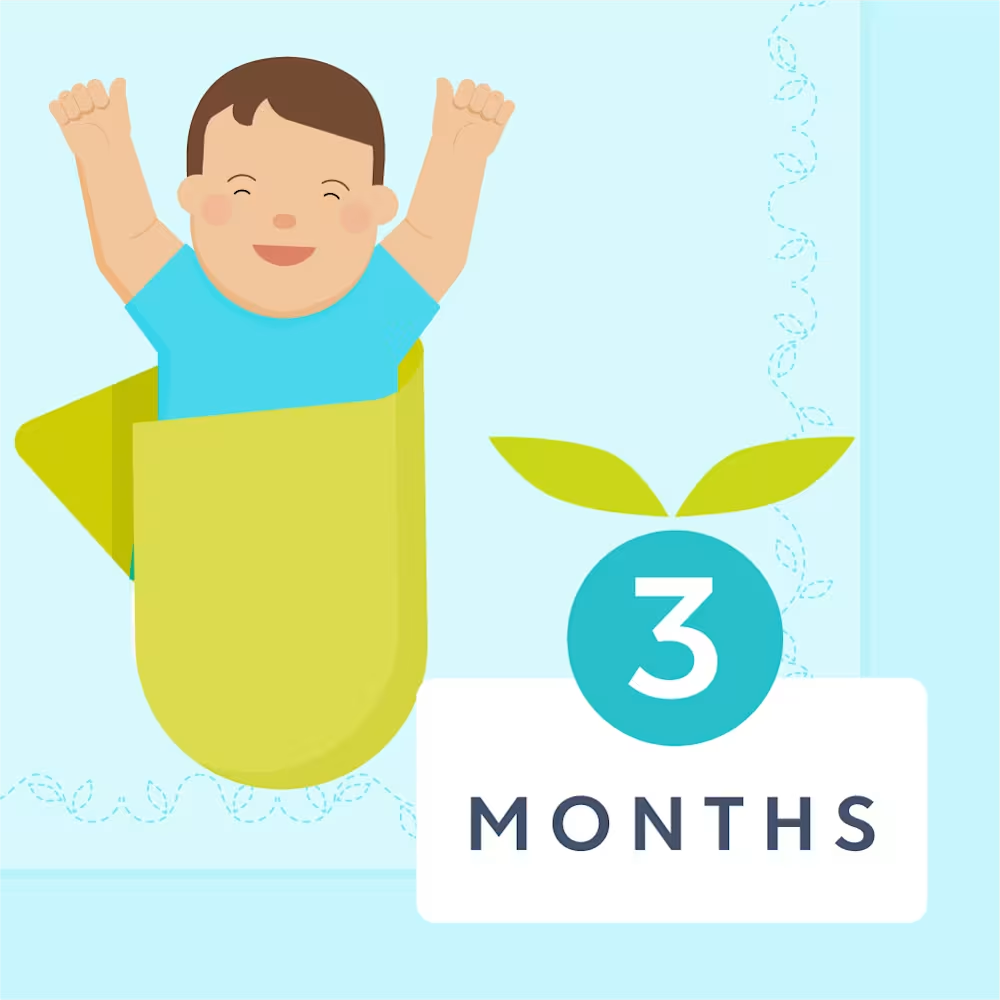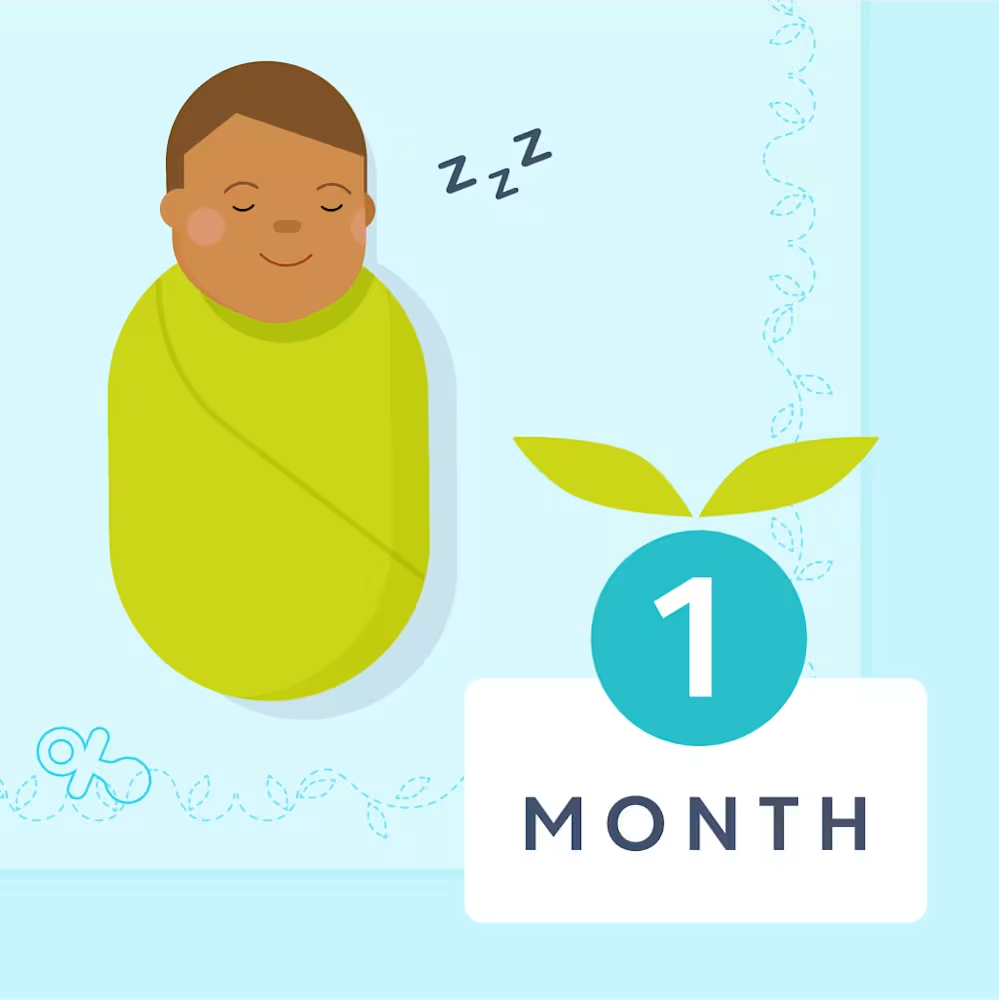Baby takes short naps: Why and how to extend short naps?
Updated Dec 29, 2025
Up-to-date

As you might guess, we’re pretty nap-obsessed over here at Huckleberry. Not only does the right amount of daytime sleep give caregivers some much-needed downtime (woohoo!), but age-appropriate naps also help ensure babies get to bed without getting to that dreaded “overtired” stage we’re always talking about. (If you haven’t heard us mention it before, overtiredness can lead to difficulty falling asleep as well as shortened sleep.)
So when we see a family struggling with infant short naps, we’re all over fixing it. Whether your baby suddenly started taking short naps or has always been a catnapper, you’ve come to the right place!
Short naps vs. long naps
Nap struggles can occur at any age but before we get into why babies sometimes take short naps and how to extend short baby naps it’s important to understand how long naps should be. Sometimes parents simply don’t know what normal naps look like or are expecting longer naps than what is age-appropriate. For example, parents may be concerned that their baby’s afternoon nap is too short when the baby only naps 30 minutes and aren’t aware this is normal for younger babies. This chart helps explain what is considered a short nap vs. a long nap.
When babies sleep for 45 minutes or less and wake up after just 1 sleep cycle this is considered a short nap. Long naps range from 1.5 - 3 hours and occur when babies successfully transition from the first sleep cycle to the next.
While short naps can be frustrating at times, short naps are not all “bad.” In fact, they're normal at different ages and stages. For example, 6 month olds on a e typically have 2 longer naps each day and a shorter catnap in the late afternoon.
Many parents are concerned that their newborn only takes short naps (unless being held!). But it's quite common for newborns to take lots of short naps throughout the day. Understanding what’s normal can really help us determine when baby short naps are a problem and when they’re to be expected.
When do babies' naps get longer?
Generally speaking, babies begin taking longer naps once they consolidate their naps. In the first few months of life, it's not unusual for naps to vary a lot in length — sometimes babies may nap for just 30 minutes while other naps could be as long as 2 hours. The tricky part is not knowing which naps will be long and which naps will be teeny-tiny “micro naps.”
By 3 months old you should begin to notice a more consistent sleep pattern and can expect a more predictable schedule. At this age babies generally need 4 - 5 naps per day and nap length can be anywhere between 30 minutes and 2 hours. We encourage families to try for at least in the crib or cot.
As your baby approaches 4 months old you can expect naps to lengthen even more. Morning naps are typically the longest naps and should be between 45 - 90 minutes.
By 5 months old you should be able to count on at least one long nap of at least 1 hour. Don’t be surprised however if the last nap of the day remains short and needs to be assisted.
Beginning around 6 months your baby’s first two naps of the day should be 1 hour or longer. We know this is great news for all the parents of catnappers!
If your baby wasn’t taking long naps before you’ll be even happier to learn naps will continue to lengthen with each passing month. By 7 months your baby should be napping on a pretty consistent schedule. Then around 8 - 9 months your baby should make the switch from a 3-nap schedule to a . Short naps during this nap transition can occur but will resolve once your baby has adjusted to their new nap schedule.
You can expect another nap transition (and ultimately longer naps) between 15 - 18 months. (Remember, short naps during a nap transition are common!) Once on a , your baby’s naps can be 2 hours or more!
Top 5 reasons babies take short naps
There are many reasons why your little one may be taking short naps. Some possible explanations include:
Your child needs help to fall asleep
Feedings need to be adjusted
The environment isn’t conducive to sleep
Baby’s schedule needs adjusting
Your baby is preparing to drop a nap
We'll explain more below:
1. Your child needs your help to fall asleep
While there’s absolutely nothing “wrong” with rocking or feeding your baby to sleep (it’s so sweet!), doing so can make it difficult for children to fall back to sleep on their own when they transition through sleep cycles. Parent-led sleep associations (like using movement or to help your baby fall asleep) often equal shortened sleep for babies 4 - 5 months and up. On the flip side, once a child can fall asleep on their own, in their own sleep space, we often see longer naps.
2. Feedings need to be adjusted
Day or night, hunger often leads to baby naps getting shorter. While we don’t encourage caregivers to feed their baby to sleep (see Reason 1), moving feedings a bit closer to nap time can sometimes help babies sleep longer.
3. The environment isn’t conducive to sleep
During the newborn stage, babies can often conk out wherever they are - no matter the amount of noise or bright light. However, as babies get older, the surroundings tend to matter more and can prevent children from falling back to sleep when they wake a bit in between sleep cycles. Most children (most people for that matter!) sleep better in quiet, dark, cool rooms.
4. Baby’s schedule needs adjusting
We might sound like a broken record here, but timing matters a great deal for most children when it comes to the quality and length of sleep. You might have already guessed that overtiredness can impact day sleep just as much as night sleep. But it might surprise you to find out that under-tiredness can also lead to shortened naps. That’s why we developed the Huckleberry SweetSpot®: the world’s first real-time predictor of when a child is next likely to be tired, but not overtired.
5. Your baby is preparing to drop a nap
Even the best sleepers will sometimes experience a nap regression or short naps as they prepare to drop a nap. If your baby’s naps are getting shorter, consider if a nap transition is the cause. The most common ages for a nap transition are around 6 months, 8 months, and 15 - 18 months.
2 tips to get your baby to take longer naps
Watch baby’s wake windows
Remember timing is key to good naps. If you miss your baby’s optimal wake window your baby may have more trouble falling asleep and connecting sleep cycles. An overtired baby may cry more before naps, take longer to fall asleep, and wake up grumpy or crying after naps. Using the Huckleberry SweetSpot® can help you manage wake windows and know when your baby should go down for a nap.
Try the Nap Hour Technique
Helping your baby nap in the crib can feel impossible at times, especially if your baby has always been held or rocked to sleep. Even after you’ve been able to have naps take place in the crib you may be struggling to get long naps in the crib. Sometimes it is possible to extend short naps by replacing your baby’s pacifier or patting for a few minutes without getting baby out of the crib. If your baby is at least 5 - 6 months old and can fall to sleep on their own for naps, implementing a “nap hour” may be a better solution.
The Nap Hour Technique: Put your baby down for a nap at the designated nap time and leave them in the crib for a full hour, regardless of whether they sleep or not. If the baby wakes up before the hour is over, keep them in the crib until the hour has passed. This gives them the opportunity to fall back to sleep after a short nap. If your baby is crying or upset, provide brief comfort without picking them up, such as patting or shushing, to help them settle back to sleep. Over time, this can help a baby link sleep cycles during the day, which lengthens their naps. Note that we recommend this only for the first two naps of the day, as any subsequent naps tend to be shorter naps.
Takeaway
Short naps are not always cause for concern: Naps under 45 minutes are common and developmentally appropriate, especially in the newborn and early infant stages.
Longer naps come with maturity: As babies’ sleep cycles mature (typically between 4 - 6 months), naps naturally begin to lengthen.
Timing matters more than duration: Both overtiredness and under-tiredness can shorten naps, which is why age-appropriate wake windows are key.
Environment and sleep skills play a role: Dark, quiet sleep spaces and the ability to fall asleep independently make it easier for babies to connect sleep cycles.
Share article:
Note: The content on this site is for informational purposes only and should not replace medical advice from your doctor, pediatrician, or medical professional. If you have questions or concerns, you should contact a medical professional.
Share article:





